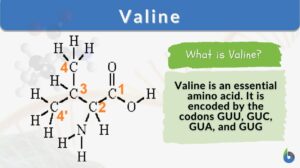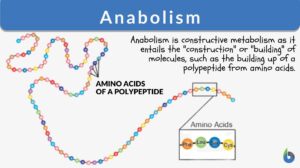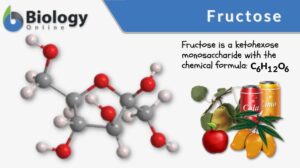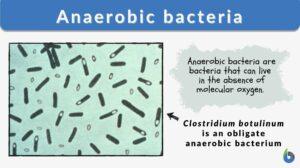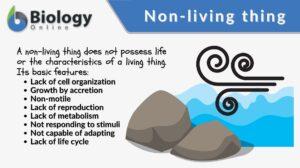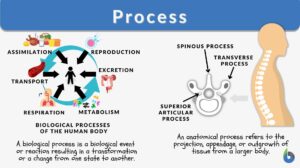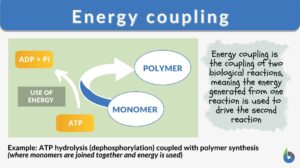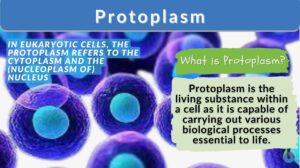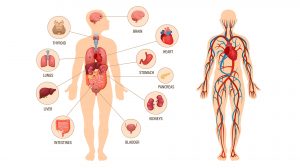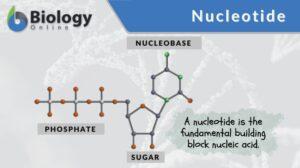Search Results for: catabolism
Catabolism
Catabolism Definition Catabolism is the branch of the metabolic process that breaks down complex, big molecules into... Read More
Metabolism
Metabolism Definition What is metabolism in the body? Metabolism encompasses the various biochemical processes, reactions,... Read More
Regulation of Organic Metabolism, Growth and Energy Balance
Organic Metabolism Events of Absorptive and Post-absorptive States. The absorptive state is the period during which... Read More
Protein Activity and Cellular Metabolism
Protein Binding Sites The ability of various molecules and ions to bind to specific sites on the protein surface forms the... Read More
Anaerobic bacteria
Bacteria are classified according to the need for oxygen to survive and grow. For example, aerobic bacteria are bacteria... Read More
Living things
Living Things Definition A living thing pertains to any organism or a life form that possesses or shows the characteristics... Read More
Non-living thing
Non-living Thing Definition A non-living thing in biology means any form without a life, such as an inanimate body or... Read More
Nucleobase
Definition noun plural: nucleobases (biochemistry) The base in the nucleic acid, e.g. purines and pyrimidines Details ... Read More
Metabolic disorder
Definition noun, plural: metabolic disorders A disorder in the metabolism, often caused by a dysfunctional enzyme as a... Read More
Decomposer
Decomposer Definition The organisms that carry out the process of decay or breakdown of the dead organism are known as... Read More
Energy coupling
What is Energy Coupling? Work, whether it be physical or biological, requires energy to be expended. In biological... Read More
Carbohydrate
Carbohydrate Definition A biomolecule refers to any molecule that is produced by living organisms. As such, most of them... Read More
Protoplasm
Protoplasm Definition The protoplasm is regarded as "the living material or the living content of a cell". It is fluid... Read More
Ribonucleotide
Definition noun plural: ribonucleotides ri·bo·nu·cle·o·tide, ˌraɪbəʊˈnjuːklɪəˌtaɪd A form of nucleotide in... Read More
The Human Physiology
Physiology is the study of how living organisms function. Thus, human physiology deals specifically with the physiological... Read More
Cytidine monophosphate
Definition noun plural: cytidine monophosphates (biochemistry) A nucleotide composed of cytosine, ribose and a phosphate... Read More
Cyclic guanosine monophosphate
Definition noun plural: cyclic guanosine monophosphates (biochemistry) A cyclic form of guanosine monophosphate (chemical... Read More
Krebs cycle
Krebs cycle, also known as the citric acid cycle or tricarboxylic acid (TCA) cycle, is a fundamental metabolic pathway that... Read More
Devolution
Devolution a continuing process of degeneration or breaking down, in contrast to evolution. See: involution,... Read More
Cyclic adenosine monophosphate
Definition noun plural: cyclic adenosine monophosphates (biochemistry) A cyclic form of adenosine monophosphate that... Read More
Metabolic pathway
Definition noun A series of chemical reactions catalyzed by enzymes and are connected by their intermediates, i.e. the... Read More
Cytidine triphosphate
Definition noun plural: cytidine triphosphates (biochemistry) An organic compound that is composed of cytidine (a cytosine... Read More
Catabolic pathway
Definition noun A sequence of degradative chemical reactions that break down complex molecules into smaller units, usually... Read More
Nucleotide
Nucleotide Definition A nucleotide is regarded as the basic building block of nucleic acid (e.g. DNA and RNA). A nucleic... Read More
Fermentation
Fermentation Definition What is fermentation? Fermentation is the breaking down of sugar molecules into simpler compounds... Read More
Dissimilation
Breakdown of more complex substances into simpler ones with release of energy.dissimilation Synonym:... Read More
Monosaccharide
Monosaccharide Definition In biology and biochemistry, a monosaccharide is a simple sugar that constitutes the building... Read More


